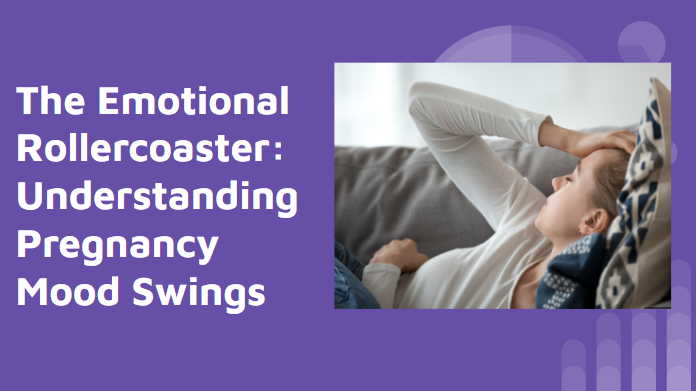CVS Pregnancy Tests: Understanding Sensitivity and Specificity
Last Updated on September 7, 2023 by Lily
When it comes to prenatal testing, understanding the concepts of sensitivity and specificity is crucial. This topic delves into the significance of these metrics in the context of CVS (Chorionic Villus Sampling) pregnancy tests, providing insight into their role in ensuring accurate and reliable results.
Sensitivity: Detecting True Positives
Defining Sensitivity
Sensitivity is a measure of how effectively a test can identify true positive cases. In the context of CVS pregnancy tests, it refers to the ability to accurately detect the presence of a specific condition or genetic abnormality in the fetus.
Sensitivity in CVS Testing
CVS testing is known for its high sensitivity in detecting chromosomal abnormalities and genetic disorders. This means that it is highly effective at correctly identifying cases where such conditions are present.
The Significance of High Sensitivity
High sensitivity in CVS testing means that the test is adept at catching even subtle indications of genetic abnormalities. This capability is invaluable for expectant parents, as it provides a high level of confidence in the test’s ability to accurately identify potential health concerns in the developing fetus.
Specificity: Minimizing False Positives
Defining Specificity
Specificity is a measure of a test’s ability to correctly identify true negative cases. In CVS testing, it refers to the capacity to accurately rule out the presence of a specific condition or genetic abnormality when it is not actually present.
Specificity in CVS Testing
CVS tests also demonstrate a high level of specificity. This means that they are effective at minimizing false positive results, providing expectant parents with a high level of confidence in the accuracy of the test.
The Importance of High Specificity
High specificity in CVS testing ensures that expectant parents are not needlessly alarmed by false positive results. This aspect of the test’s performance is crucial for providing peace of mind and accurate information about the genetic health of the developing fetus.
Balancing Sensitivity and Specificity
The Trade-off
Achieving a balance between sensitivity and specificity is crucial in prenatal testing. While high sensitivity ensures that true cases are detected, high specificity minimizes the likelihood of false positive results.
Why Balance Matters in CVS Testing
In the context of CVS pregnancy tests, a balanced approach ensures that expectant parents receive accurate information about the genetic health of the developing fetus. This helps them make informed decisions regarding their pregnancy.
The Role of Genetic Counseling
Genetic counseling plays a vital role in helping expectant parents understand the significance of sensitivity and specificity in CVS testing. It provides an opportunity to discuss the potential outcomes of the test and to address any concerns or questions.
Factors Influencing Sensitivity and Specificity
Laboratory Expertise
The experience and expertise of the laboratory conducting the CVS test play a significant role in determining both sensitivity and specificity. Well-trained technicians and state-of-the-art equipment contribute to accurate results.
Sample Quality
The quality of the chorionic villi sample obtained during the CVS procedure is crucial. A well-preserved sample with sufficient genetic material enhances the accuracy of the test.
Genetic Variability
In some cases, the genetic makeup of the fetus or the presence of genetic mosaicism (a mixture of normal and abnormal cells) can influence the sensitivity and specificity of CVS testing.
Ongoing Advancements in Technology
Continual advancements in genetic testing technology contribute to improvements in both sensitivity and specificity. State-of-the-art equipment and updated testing protocols enhance the accuracy of CVS tests.
FAQs
How does sensitivity and specificity impact the reliability of CVS testing?
Sensitivity ensures that true cases are accurately detected, while specificity minimizes the likelihood of false positives. Balancing these factors is crucial for ensuring the reliability of CVS testing.
Can a CVS test provide both high sensitivity and high specificity?
Yes, CVS testing can achieve both high sensitivity and high specificity, especially when performed by experienced healthcare providers and in well-equipped laboratories.
Can factors like maternal age influence the sensitivity and specificity of CVS testing?
While maternal age is an important factor in determining the likelihood of certain genetic conditions, it does not directly influence the sensitivity and specificity of the CVS test itself.
Are there any genetic conditions that may impact the accuracy of CVS testing?
Some rare genetic conditions or genetic mosaicism (a mixture of normal and abnormal cells) can pose challenges to the accuracy of CVS testing. However, these cases are relatively uncommon.
How do healthcare providers ensure the quality of the chorionic villi sample during a CVS procedure?
Healthcare providers are trained to carefully obtain chorionic villi samples during the CVS procedure. They use sterile instruments and follow strict procedural guidelines to ensure sample quality.
Is genetic counseling necessary before undergoing CVS testing?
While not mandatory, genetic counseling is highly recommended before undergoing CVS testing. It provides expectant parents with the opportunity to discuss the implications of the test and any potential outcomes.
Can I opt for retesting if I have concerns about the initial CVS results?
If you have concerns about the initial CVS results, it’s important to discuss them with your healthcare provider. They can provide guidance on whether retesting is advisable based on your specific situation.
Are there situations where CVS testing may not be suitable?
CVS testing may not be recommended in cases where there is an active infection in the mother, if the placenta is located in a way that makes it difficult to access, or if there are certain bleeding disorders. These factors will be assessed by a healthcare provider before the procedure is performed.
Can CVS testing be performed if I have a tilted uterus?
Yes, having a tilted uterus (also known as a retroverted uterus) typically does not affect the ability to perform a CVS procedure. However, it’s important to inform your healthcare provider about any anatomical variations.
Can CVS testing detect neural tube defects?
CVS testing primarily focuses on detecting chromosomal abnormalities and genetic disorders. Neural tube defects are typically assessed through other prenatal screening methods, such as ultrasound examinations.
Can CVS testing reveal information about the baby’s health beyond genetic conditions?
CVS testing primarily provides information about genetic health. Other aspects of the baby’s health, such as organ development and function, are typically assessed through ultrasound examinations.
Can I eat or drink before a CVS procedure?
It’s generally recommended to have a light meal before a CVS procedure. However, specific instructions may vary, so it’s essential to follow the guidance provided by your healthcare provider.
Is there a chance of complications during the CVS procedure?
While rare, complications can occur during a CVS procedure. These can include bleeding, infection, or a small risk of miscarriage. Healthcare providers are trained to minimize these risks and will discuss them with you before the procedure.
Can I have a partner or support person with me during the CVS procedure?
Many healthcare providers allow a support person, such as a partner or family member, to be present during the CVS procedure for emotional support. It’s important to discuss this with your healthcare provider beforehand.
Can I receive pain relief or anesthesia during the CVS procedure?
In most cases, CVS procedures are performed without the need for anesthesia. The discomfort experienced is usually mild. However, if you have concerns about pain management, discuss this with your healthcare provider beforehand.
Can I undergo CVS testing if I have a history of miscarriage?
Yes, CVS testing can be performed even if there is a history of miscarriage. However, it’s important to discuss this history with the healthcare provider, as they may take extra precautions during the procedure.



